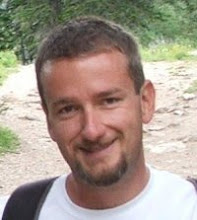- "How often I see that blindly raging industriousness does create wealth and reap honors while at the same time depriving the organs of their subtlety, which alone would make possible the enjoyment of wealth and honors; also that this chief antidote to boredom and the passions at the same time blunts the senses and leads the spirit to resist new attractions. The most industrious of all ages --ours-- does not know how to make anything of all its industriousness and money, except always still more money and still more industriousness; for it requires more genius to spend than to acquire."
- "After Buddha was dead, his shadow was still shown for centuries in a cave -- a tremendous, gruesome shadow. God is dead; but given the way of men, there may still be caves for thousands of years in which his shadow will be shown. --And we-- we still have to vanquish his shadow, too."
- "But how could we reproach or praise the universe? Let us beware of attributing to it heartlessness and unreason or their opposites: it is neither perfect nor beautiful, nor noble, nor does it wish become any of these things; it does not by any means strive to imitate man. None of our aesthetic and moral judgements apply to it. Nor does it have any instinct for self-preservation or any other instinct; and it does not observe any laws either. Let us beware of saying that there are laws in nature. There are only necessities: there is nobody who commands, nobody who obeys, nobody who trespasses. Once you know that there are no purposes, you also know that there is no accident; for it is only beside a world of purposes that the word 'accident' has meaning. Let us beware of saying that death is opposed to life. The living is merely a type of what is dead, and a very rare type."
- "The madman jumped into their midst and pierced them with his eyes. 'Whither is God?' he cried; 'I will tell you. We have killed him--you and I. All of us are his murderers. But how did we do this? How could we drink up the sea? Who gave us the sponge to wipe away the entire horizon? What were we doing when we unchained this earth from its sun? Whither is it moving now? Whither are we moving? Away from all suns? Are we not plunging continually? Backward, sideward, forward, in all directions? Is there still any up or down? Are we not straying as through an infinite nothing? Do we not feel the breath of empty space? Has it not become colder? Is not the night continually closing in on us? Do we not need to light the lanterns in the morning? Do we hear nothing as yet of the noise of the gravediggers who are burying God? Do we smell nothing as yet of the divine decomposition? Gods, too, decompose. God is dead. God remains dead. And we have killed him.'
'How shall we comfort ourselves, the murderers of all murderers? What was holiest and mightiest of all that the world has yet owned has bled to death under our knives: who will wipe this blood off us? What water is there for us to clean ourselves? What festivals of atonement, what sacred games shall we have to invent? Is not the greatness of this deed too great for us? Must we ourselves not become gods simply to appear worthy of it? There has never been a greater deed; and whoever is born after us--for the sake of this deed he will belong to a higher history than all history hitherto.'" - "Egoism is the law of perspective applied to feelings: what is closest appears large and weighty, and as one moves farther away size and weight decrease."
- "Those who want to mediate between two resolute thinkers show that they are mediocre; they lack eyes for seeing what is unique. Seeing things as similar and making things the same is the sign of weak eyes."
- "For believe me: the secret for harvesting from existence the greatest fruitfulness and the greatest enjoyment is--to live dangerously!"
- "At bottom I abhor all those moralities which say: 'Do not do this! Renounce! Overcome yourself!' But I am well disposed toward those moralities which goad me to do something and do it again, from morning till evening and then to dream of it at night, and to think of nothing except doing this well, as well as I alone can do it. When one lives like that, one thing after another that simply does not belong to such a life drops off. Without hatred or aversion one sees this take its leave today and that tomorrow, like yellow leaves that any slight stirring of the air takes off a tree. He may not even notice that it takes it leave; for his eye is riveted to his goal--forward, not sideward, backward, downward. What we do should determine what we forego; by doing we forego--that is how I like it, that is my placitum. But I do not wish to strive with open eyes for my own impoverishment; I do not like negative virtues--virtues whose very essence it is to negate and deny oneself something."
Tuesday, September 27, 2005
The Gay Science
Here are some quotes that I highlighted recently while reading Nietzsche's, "The Gay Science".
Subscribe to:
Post Comments (Atom)

No comments:
Post a Comment